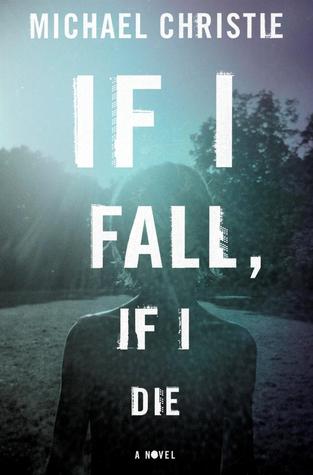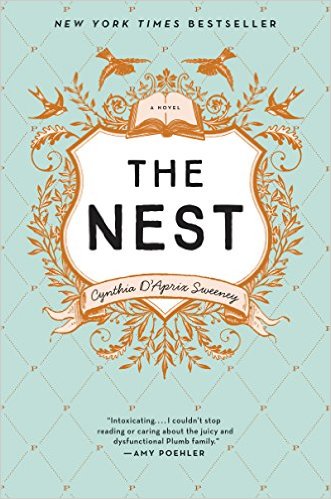Will’s life consists of two worlds: Outside and Inside. Raised by an eccentric and fiercely agoraphobic mother, Will has never stepped foot Outside—that is, until he can no longer contain his curiosity. Armed with only a helmet, Will finally steps out of the house and winds up befriending Jonah, who teaches him the thrills of skateboarding. But life Outside turns threatening when a boy goes missing, and Jonah and Will decide to investigate the mystery themselves. Suddenly Will finds himself thrown into a dangerous underworld, leaving his mother to face her greatest fear: will she be brave enough to save her son?
 Thunder Bay is a long, long way from southern Ontario. Almost 1000 km sit between it and Toronto, and the difference between the two is something author Michael Christie is very familiar with. Christie was born and raised in Thunder Bay, and his portrait of it always feels entirely authentic, if quite unflattering. The city is not the focal point of If I Fall, If I Die but it permeates every chapter, every scene: the abandoned grain silos that punctuate the city’s geography, the seedy bars and strip malls, the concrete and empty streets that serve as a skateboarder’s playground, the list goes on. The economic decline of the city sits like an oppressive weight over everything, like the heavy snow that falls and hardens into a layer of ice.
Thunder Bay is a long, long way from southern Ontario. Almost 1000 km sit between it and Toronto, and the difference between the two is something author Michael Christie is very familiar with. Christie was born and raised in Thunder Bay, and his portrait of it always feels entirely authentic, if quite unflattering. The city is not the focal point of If I Fall, If I Die but it permeates every chapter, every scene: the abandoned grain silos that punctuate the city’s geography, the seedy bars and strip malls, the concrete and empty streets that serve as a skateboarder’s playground, the list goes on. The economic decline of the city sits like an oppressive weight over everything, like the heavy snow that falls and hardens into a layer of ice.
Facing all of this for the first time in his life is Will, who has spent all of his eleven years living “Inside”, what he calls the interior of his house. Will is believably innocent for a boy who’s never stepped Outside, and he forms a quick attachment to the first peer he meets when he steps out of the house. The friendships Will makes highlight the tensions between First Nations citizens and everyone else, as he befriends first Marcus and then Jonah, both First Nations boys. Will is brazen in his newfound freedom, and wants Jonah to be too, but everything Jonah does is tempered with the knowledge that the cops are just waiting for him to mess up. At school and around authority, Jonah stays silent, refusing to give anyone fuel for discrimination.
What Christie does best is weave his nuanced characters into a firm sense of place. Will is slightly too fearless to be fully believable—for someone who’s never experienced danger, he’s remarkably calm after being attacked by a wolf—although Christie makes it work for the story. Jonah, elegant and careful, feels more real. But it’s Diane, the agoraphobic mother of Will, that really stands out. Christie chronicles her growing anxiety that keeps her locked in her home, and he does it honestly. Diane never seems pathetic (except through her son’s eyes) because Christie makes her fear seem real.
Personally, I wish Christie would have stuck with this character-driven mode of storytelling, but halfway through he switches the focus onto the disappearance of Marcus, and the book loses much of its depth in favour of a contrived mystery, like a darker version of the Hardy Boys. There are gangsters and presumed-dead uncles and trained wolves, and suddenly the book feels less like an exploration of mental illness, race relations and economic despair and more like a Hollywood movie. The mystery didn’t grip me as much as the characters did. I liked the novel, but I think I would have loved it had the mystery stayed in the background.
If you enjoy Christie’s writing, check out his previous work of short stories, The Beggar’s Garden.
___________________________________
Some questions to consider about If I Fall, If I Die are:
1. The Irish Times calls the novel “an allegory of the rampant anxiety of the modern age.” Do you agree with this? Why or why not?
2. Will encounters serious criminals, wild animals, and has his life threatened several times. But at the end of the novel, he “still loved the Outside so intensely that he worried he could die of it.” Is this realistic?
3. Consider the skateboarding motif. Will describes the activity as “mastery — a seizure of control, not a loss. That the board did their bidding — danced or flipped or spun successfully beneath them — afforded the most sublime pleasures of their short lives.” How is this true for Will? For Jonah?


